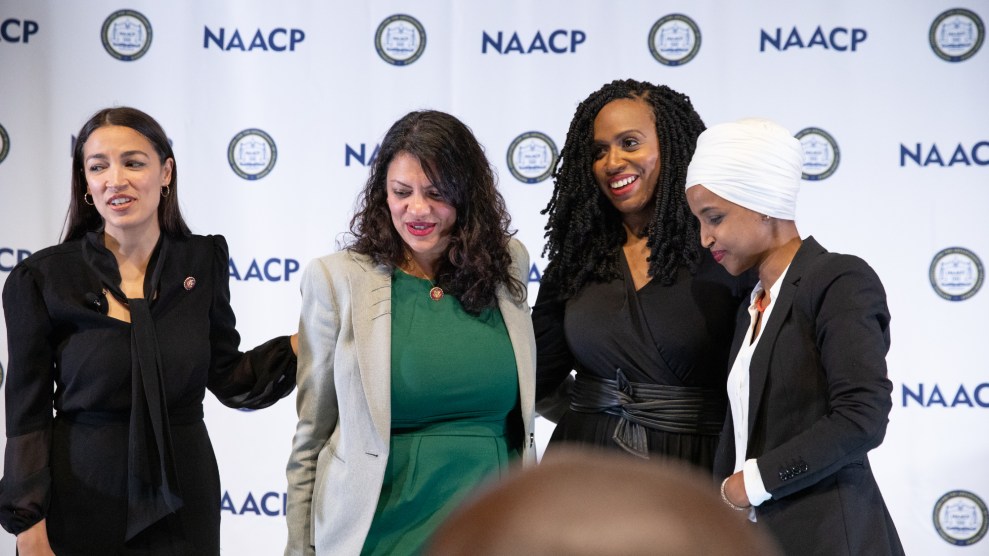This is the story of how the establishment really works, the inside scoop on how to get very close to walking down the corridors of power with Bill and Hillary and many charming economists. It’s a story of preparation, timing, and chicken breasts done in a light tarragon sauce.
In the early seventies, at the Graduate School of Journalism at the University of California, Berkeley, there were three friends: Tracy and Patty and Erik. They matriculated with flapping colors and started their careers. Tracy became a magazine journalist; Patty became a restaurateur; Erik became a screenwriter.
In due time, they each married. Tracy married me, which was sound thinking on her part. Patty married Tim, who was a fine lawyer and an accomplished after-dinner debater. Erik married Laura, who was an economist.
Tracy and Patty and Erik all liked to talk, Erik most of all. He was a raconteur, and he knew it. Probably all raconteurs know they’re raconteurs, but Erik delivered value for money. He held forth. He also provided good cigars and poured good brandy. Dinner at Erik and Laura’s was always welcome. There was lots of laughter.
I should mention perhaps that I too like to talk just a little bit. I have the kind of chatty shallowness that is often a useful tool for social survival. So what with Tim debating and Erik quipping and me anecdoting and Patty opining and Tracy narrating, it got pretty darned noisy around the table.
Naturally, because I have a sensitive kind of shallowness, I asked Laura about her work. She said she was interested in certain trade issues that were emerging in Yugoslavia after Tito.
Well, yes. Now, that is very, very important, the trade issue in the Balkan regions. We can all learn a lot from modeling, I suppose you could say, the trade, as it were, structures that have relevance to the new emerging Europe and the collapsing Soviet Union, Turkey, protectionism, and so forth. Yes.
But somehow we never got to the bottom of the Yugoslavia thing. Laura was off to Belgrade again. Was it likely to be cold? Were the restaurants open late? We drew Laura out. Room service was not to be trusted, it appeared.
Then Erik and Laura went away to Massachusetts for a year. We heard that Harvard and UC Berkeley were actually vying for Laura’s services. Largish sums of money were being discussed; apparently the universities were willing to create entire institutes just for the privilege of having Laura head them.
“Is Laura like distinguished or something?” I asked Tracy.
“We should really ask her,” said Tracy.
We did. Laura laughed. She has a genuinely musical laugh, a kind of un-forced glissando. “Maybe they like my ideas,” she said. I was about to ask about the precise nature of those ideas when anecdotage erupted at the other end of the table.
So then it was 1992. Yugoslavia had ceased to exist and with it, one suspected, some really fascinating trade issues. There was a benefit for the Clinton campaign at Patty’s restaurant. Laura was to be the main speaker, and I was to introduce her. We were sitting around the table waiting for some exquisite California salad, greens that were largely not green at all, to be placed in front of us.
“Whaddya think of this whole BCCI thing?” I asked Laura. I mean, hell, she’s an economist and BCCI was a bank.
“I don’t know anything about it, really.”
“I tend toward a cynical view.”
Laura smiled. “I think it would be almost impossible to have a too- cynical view of it,” she said.
So two months later, Laura D’Andrea Tyson was named to chair the President’s Council of Economic Advisers, surprising the hell out of me and, it would seem, a lot of grumpy, middle-aged, white guys, including the much-loathed Lawrence Summers, formerly allied with the World Bank.
She was immediately vilified–my friend Laura of the tarragon chicken and green beans, the belle of Belgrade, the toast of two universities–in the New York Times, which also called Erik a “pianist.” I mean, he owns a piano. It is not the same thing. She refused to comment “through a spokesman.” Yow!
I realized then that she had become a headline, that her opinion suddenly had powerful international heft. The Chairperson of the President’s Council of Economic Advisers said recently that “no view is too cynical” in assessing the still-emerging BCCI scandal.
Her remarks were taken out of context by a close friend.
Well, I expect now that Erik and Laura are settled, they’ll be asking us to Georgetown for one of those fine chicken dinners and Bill and Hillary will drop by and we’ll talk about Jerry Jeff Walker and Egg McMuffins and, I dunno, restructuring the unfair tax situation for free-lance writers. Perhaps, however, every time Laura opens her mouth, the rest of us will shut up just for a moment, in case she’s about to utter one of those distinguished comments she is said to make with some regularity.
If we listen closely enough, she might even tell us how she plans to cope with Lloyd Bentsen, an individual about whom, it is my belief, no view is too cynical.















